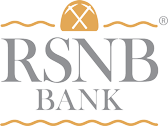Online Banking
Identity Theft & Fraud
The information contained in the bank's Security Awareness Center is here to help prevent you from identity theft and fraud. Fraud is usually limited to an isolated attempt to steal money from an existing account. Identity theft occurs when someone steals your personal information and uses it to open new accounts or initiate transactions in your name.
Below are a few more tips to help protect you.
- Carry only necessary information with you. Leave your Social Security card and unused credit cards at home in a safe and secure location
- Do not provide your Social Security number unless absolutely necessary
- Question suspicious emails, texts, or phone inquiries. Be especially wary of those requesting account information to "award a prize" or "verify a statement"
- If you are uncomfortable with a phone call that was not initiated by you, hang up or ask for the purpose of the call. Then contact the company using legitimate sources such as contact phone numbers found on the company's website or your account statements
- Replace paper invoices, statements and checks with electronic versions, if offered by your employer, bank, utility provider or merchant
- Shred unnecessary financial documents, including old bank statements, invoices, and unwanted pre-approved credit offers before discarding
- Promptly retrieve incoming mail and place outgoing mail in a U.S. Postal Service mailbox, instead of in your home mailbox, to reduce the chance of mail theft
You can check your credit by obtaining a copy or your credit report at any time from one of the three major credit bureaus. You can request a fraud alert on your credit reports, which will alert creditors to call for your approval if they receive applications to open new accounts
- Equifax: 800-685-1111 or www.equifax.com
- Experian: 888-397-3742 or www.experian.com
- TransUnion: 800-916-1111 or www.transunion.com
